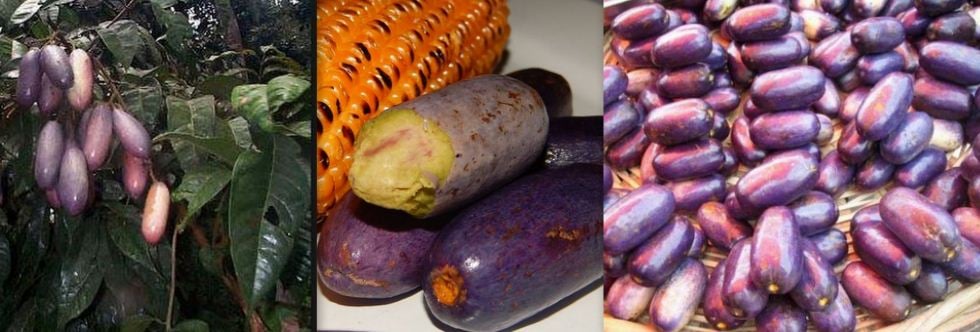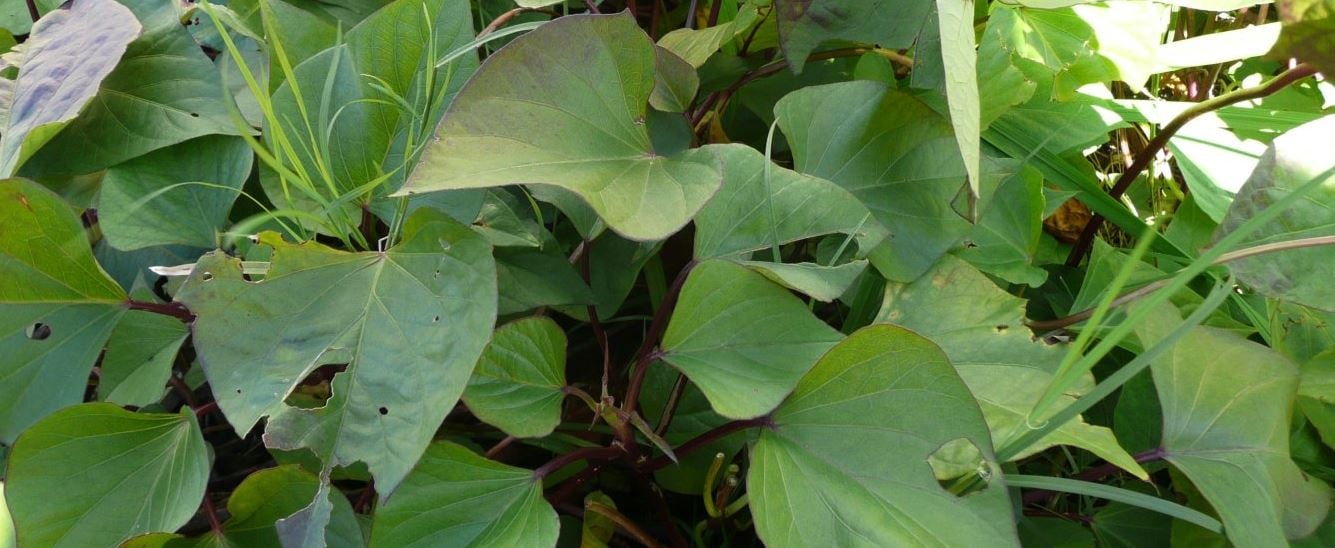About African Pear or Bush Pears and its Health Benefits

African pear or bush pear is a native fruit of West Africa mainly found in southeast Nigeria, popularly called Ube.
It is interesting to eat it with roasted or cooked corn. It is pink when unripe but turns dark purple when ripped; it is butter-like when roasted or dipped in hot water and is enjoyed by all.
1. Rich in Antioxidants
The fruit is essential in microbial activities as an antioxidant, anti-microbial, and anti-sickle cell disease.
These antioxidant and anti-microbial properties in bush pears are very active and practical at the new state and even when boiled.
They help to slow the effects of microorganisms on the body and ward off disease-causing organisms in the human body.
2. Boosts Immune System
Bush pears help improve immunity due to vitamin C, which allows the immune system to resist certain diseases and maintain healthy immunity.
Immune-boosting property in African bush pear comes from vitamin C and essential minerals that act as antioxidants that help strengthen immunity and improve the immune system's infection-fighting ability.
3. Helps in Protein Synthesis
Pantothenate, known as vitamin B5, is an essential nutrient found in bush pears that helps synthesize protein, fats, and carbohydrates and contributes to producing adrenal hormones and red blood cells.
4. Promote Skin health
They are rich in oil which contains several nutrients in the green-colored part. When purple flesh can helps treat some skin diseases such as ringworm, craw-craw, and related others.
According to nutritionists, the pulpy pericarp can be eaten raw or boiled, exhibits butter qualities is rich in minerals and oil, and is suitable for the skin.
Vitamin C is a potent antioxidant and a dietary supplement, just as riboflavin; both nutrients help to keep the skin glowing.
5. Reduces Constipation
The soluble fiber content of bush pear is a suitable property that allows it to reduce constipation and aid a regular bowel movement.
This fiber contains pectin, cellulose, and lignin that resist the action of the digestive enzyme. Pectin helps to control diarrhea and binds substances in the intestine.
6. Lowers High Blood Pressure
Bush pears have tiny clustered seeds enclosed by mesocarp, which is also nutritious and helps reduce blood pressure and the risk of stroke.
Eating at least five portions of fruits per day, including African pears or related, is advisable due to their potassium contents that help lower high blood pressure and prevent the risk of stroke.
7. Promote Healthy Bones And Teeth
Some essential minerals such as calcium and phosphorus in the fruit are the central players for healthy teeth and bones.
These minerals are critical in the skeletal system; calcium helps maintain bone health, muscle contraction, the immune system, and blood clotting.
Phosphorus on its own is vital for the formation and maintenance of healthy bones and teeth in both adults and children.
8. Prevents Cancer
Regular consumption of this fruit helps fight against cancer because of the presence of phytochemicals, a micronutrient that fights against diseases in the human body.
9. They are Allergy-Free Fruits
Bush pears are a native African fruit eaten by all ages, both children and adults; they are classified as hypoallergenic fruit because they don't cause any allergic reactions.
10. Reduces the Risk of Diabetes
African pears are rich in vitamins and minerals that are essential in controlling blood sugar levels.
Carbohydrate content in African pears has a low glycemic index (GI). It is slowly digested and metabolized to hinder the spiking of blood glucose levels, which causes diabetes.
11. Reduces Age-Related Diseases
Studies have shown that regular consumption of this fruit slows the risk of macular degeneration in aged people.
The above statement is true for African pears because they exhibit potent antioxidants that help prevent some age-related illness that causes poor vision.
12. Good For Pregnancy
You may be surprised to hear that the African pear, called "Ube" in Igbo, is a pregnancy super fruit. It contains natural folic acid, which is very good in pregnancy.
Supplement.
Folic acid in bush pears (African pears) helps prevent deficiencies in the baby's brain and spinal cord.
African pear (ube) is rich in sugars, carbohydrates, fiber, folate, pantothenate, and vitamins such as vitamin B6, thiamine, niacin, riboflavin, and the antioxidant vitamin () C), which helps to fight the free radicals in the body.
African pears contain medicinal properties that make them useful for alternative medical doctors to treat illnesses such as fever, wounds, dysentery, skin diseases, etc.
Nutritional Chart for Bush Pear
|
Nutrients |
Amount |
|
Energy |
42Kcal |
|
Total Fat |
18g |
|
Calories |
409 |
|
Total Carbohydrate |
11g |
|
Protein |
2g |
|
Lipids |
12.45% |
|
Dietary Fibre |
2.71g |
|
Vitamin C |
22.15mg |
|
Sodium |
0.87g |
|
Potassium |
1.66g |
|
Calcium |
0.13g |
|
Iron |
1.7g |
|
Phosphorus |
10.34g |
|
Zinc |
0.31mg |
|
Manganese |
0.32mg |
|
Ash |
0.20g |
Scientific studies have shown that this African pear contains significant nutrients that the body requires daily. These nutrients are pantothenate, vitamin carbohydrates, sugars, folate, fiber, and others represented in the table above.
Is African Pear (Ube) fattening?
African pear doesn’t cause overweight; it is not fattening because it contains healthy lipids without any measure of cholesterol.
On the other hand, it has natural carbohydrates and sugar in a low amount, which can help overweight people's problems.
This type of pear is excellent with boiled or roasted corn. It is in abundance during the period in which maize matures.
African Pear Seeds
The seeds of African pear, in other words, bush pear, are considered medicinal and nutritional, just as the flesh is to human health.
These seeds moderate high blood pressure. To use it for this, put roots under the sun to dry, grind them into powdered form, and use them in tea for hypertensive people to control their blood pressure.
Conclusion
Bush pear is excellent for its essential nutrients, such as antioxidants, vitamins, and minerals, which benefit human health, from cancer prevention to bone and skin improvement.




